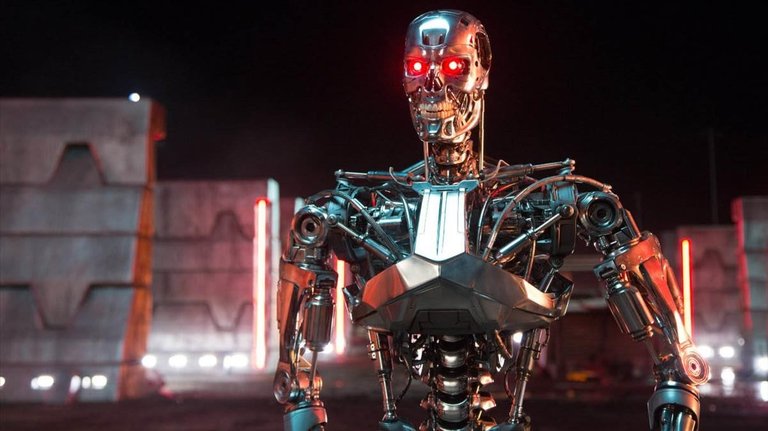50 researchers from 30 different countries warn that the application of artificial intelligence to the military field can lead to "the third revolution of wars"

(Image of the movie Terminator Génesis, of 2015)
More than 50 researchers on artificial intelligence , coming from 30 different countries, have announced on Wednesday a boycott against the Advanced Institute of Science and Technology (KAIST) of South Korea, for the inauguration of a new laboratory, according to denounce the experts, destined to the development of lethal autonomous weapons (LAWs for its acronym in English), also known as 'killer robots' .
In an open letter to the president of KAIST , the signing scientists have declared that they will not collaborate with the South Korean university nor will they receive guest professors until the institution commits to stop the development of artificial intelligence weapons that do not need a "significant human control". "
KAIST opened its new laboratory in February, in collaboration with Hanwha Systems , a company specializing in defense systems and one of the leading producers of cluster bombs in South Korea. In its inauguration, the university declared that the goal of the new center was to develop command and decision systems based on artificial intelligence technology, navigation algorithms for unmanned underwater vehicles and aircraft with intelligent tracking and object recognition technology.
Pandora's box:
In the letter, experts warn that the development of these killer robots is a Pandora's box that, once opened, will be difficult to close and will lead to the third great revolution of the wars . "If developed, autonomous weapons will allow battles to be fought faster and on a larger scale than ever," the experts warn.
The boycott has been organized by Toby Walsh , a professor at the University of New South Wales in Sydney, who has told Reuters that artificial intelligence can have more positive uses in the military field, such as clearing minefields, but of course, "We should not give up the decision of who dies and who lives to a machine, this crosses a clear moral line".
Lack of international consensus:
The letter has been published in anticipation of the meeting in Geneva next Monday of the UN Group of Governmental Experts on Systems of Lethal Autonomous Weapons , in which an official position on this type of weapons will be discussed.
In their open letter, the experts reproach KAIST that while the United Nations is trying to determine how to contain the threat of this new technology, "it is unfortunate that a prestigious university seeks to accelerate the arms race of artificial intelligence ", a race led by States United, China and Russia .
Precisely these are the countries openly reluctant to prohibit the development of these weapons. In contrast, the international Stop Killer Robots coalition fighting for the illegalization of LAWs, released in November a document that included the 22 countries in favor of the ban, mostly developing countries .